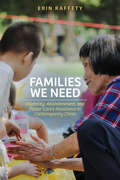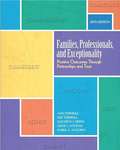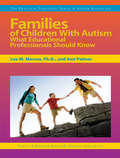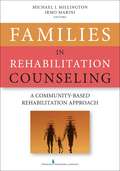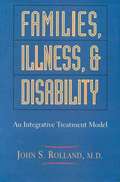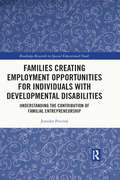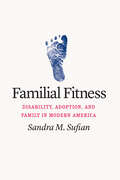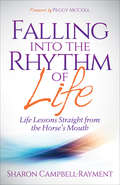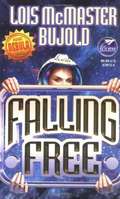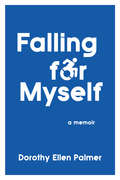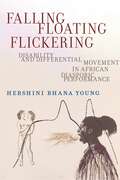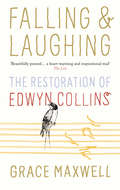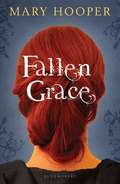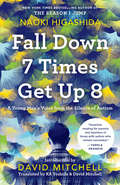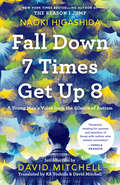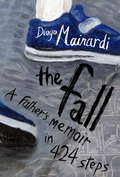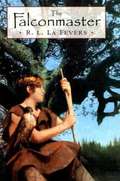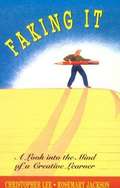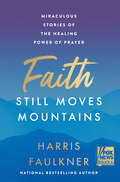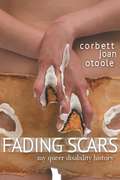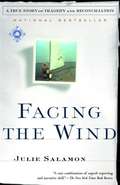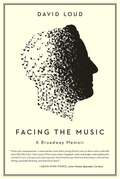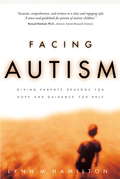- Table View
- List View
Families We Need: Disability, Abandonment, and Foster Care’s Resistance in Contemporary China
by Erin RaffetySet in the remote, mountainous Guangxi Autonomous Region and based on ethnographic fieldwork, Families We Need traces the movement of three Chinese foster children, Dengrong, Pei Pei, and Meili, from the state orphanage into the humble, foster homes of Auntie Li, Auntie Ma, and Auntie Huang. Traversing the geography of Guangxi, from the modern capital Nanning where Pei Pei and Meili reside, to the small farming village several hours away where Dengrong is placed, this ethnography details the hardships of social abandonment for disabled children and disenfranchised, older women in China, while also analyzing the state’s efforts to cope with such marginal populations and incorporate them into China’s modern future. The book argues that Chinese foster families perform necessary, invisible service to the Chinese state and intercountry adoption, yet the bonds they form also resist such forces, exposing the inequalities, privilege, and ableism at the heart of global family making.
Families, Professionals, and Exceptionality: Positive Outcomes Through Partnerships and Trust
by Ann Turnbull H. Rutherford Turnbull Elizabeth J. Erwin Leslie C. Soodak Karrie A. ShogrenThe best-known authors in the field of family and professional collaboration, this practical text instructs teachers, education professionals, and families on how to empower, collaborate, and advocate for children with special needs and how everyone involved can form lasting partnerships for the betterment of the children they live for and serve. The book has always been strong in its depiction of family systems theory, the history and current status of policy, and the principles of partnership and their application by teachers and other professionals, as well as the plethora of practical advice given to help educators find true ways to apply these principles on the job. The inclusion of authentic stories and genuine depictions of special needs people and their families only deepens the authenticity and richness of the narrative, and adds a unique and touching human element to the subject at hand. Backed by the most recent research and evidence-based practices, the authors have brought all citations and references in this edition up to date (2009). This new edition features: more families and their unique stories, including a Marine Corps family, and a single-parent family; more coverage of secondary students, and an overall broader range of disabilities; more cultural diversity and examples of families from different ethnic backgrounds; and the book now portrays a family's entire lifespan.
Families of Children With Autism: What Educational Professionals Should Know
by Lee M. Marcus Ann PalmerThis text provides an overview of the role of educational professionals in the lives of families of children with autism.
Families In Rehabilitation Counseling: A Community-Based Rehabilitation Approach
by Irmo Marini Michael J. MillingtonPresents an innovative family-based approach to rehabilitation counseling that can be put to use immediately While the family has traditionally been a secondary consideration in rehabilitation, this graduate text presents an innovative approach to rehabilitation counseling that focuses on the family as the center of a person-centered model, rather than as an adjunct to individual counseling. It advocates counseling in the context of community, requiring the recognition of social transaction as the primary focus of all interventions. The book provides the tools and knowledge base to effectively work with the family and within the community, delivering a new inclusive model of care and establishing best practices in research, practice, training, and management. The text examines the rationale for embracing family values in rehabilitation counseling and provides a framework that redefines the relationship between counselor and client in the context of family and community. It describes the community-based rehabilitation model in detail according to the International Classification of Function (ICF).
Families, Illness, and Disability: An Integrative Treatment Model
by John S. RollandWhen a family member is diagnosed with cancer or faces challenges from living with a disability, the impact reverberates throughout the family, leaving no one untouched. How should a clinician help the parents of a child who is critically ill? How can a marital relationship be skewed and a child's well-being compromised when a parent becomes permanently disabled-and how can a clinician best intervene in such cases? In presenting his clinically powerful Family Systems Illness Model, John Rolland addresses these and other vital questions of importance to families in which there is a member with a major illness or disability. Rolland's integrative treatment model is based on his experience with more than five hundred families, first as Founding Director of the Center for Illness in Families while at Yale University and currently at the University of Chicago. He applies it to a broad range of disorders that affect adults and children over the entire course of the life cycle. Richly illustrated with varied case examples, Families, Illness, and Disability is unique in describing this comprehensive model and in providing a highly practical guide to effective intervention. Through a normative, preventive lens, the book's useful framework shows how the biopsychosocial demands of different illness and disabilities create particular strains on the family, how the stages of an illness affect the family, how family legacies of loss and illness shape their coping responses, and how family belief systems play a crucial role in the ability to manage health and illness. Practitioners will learn how to help families live well despite physical limitations and the uncertainties of threatened loss, how to encourage empowering rather than shame-based illness narratives, how to rewrite rigid caregiving scripts, how to encourage intimacy and maximize autonomy for all family members. With its superb integration of individual and family modalities, this outstanding book is ideal for all health and mental health professionals and students who work with illness, disability, and loss in a wide variety of clinical settings.
Families Creating Employment Opportunities for Individuals with Developmental Disabilities: Understanding the Contribution of Familial Entrepreneurship (Routledge Research in Special Educational Needs)
by Jennifer PercivalThis volume provides an in-depth, qualitative exploration of familial entrepreneurship as an innovative employment model, being established by families in response to difficulties faced by individuals with developmental disabilities in entering the labor market. Drawing on rich qualitative data collected via research with families, this volume explores how and why familial entrepreneurs in the United States have chosen to develop businesses to employ their loved ones. Chapters offer close analysis of the challenges and opportunities associated with familial entrepreneurship and highlight the ways in which this practice supports people with developmental disabilities by providing opportunities for skill development, social interaction, and participation in meaningful activity. Recognizing familial entrepreneurship as a new and distinct hybrid employment model, the text goes on to consider how curricula, policy, and state services might better support families and underpin this form of inclusive work. The volume provides important conclusions that contribute to the fields of Disability Studies, Entrepreneurship, Inclusive Education, Adult Education, Exceptional Student Education, Transition, and Vocational Rehabilitation. It is a key reading for scholars in these fields and across Education more widely.
Familial Fitness: Disability, Adoption, and Family in Modern America
by Sandra M. SufianThe first social history of disability and difference in American adoption, from the Progressive Era to the end of the twentieth century. Disability and child welfare, together and apart, are major concerns in American society. Today, about 125,000 children in foster care are eligible and waiting for adoption, and while many children wait more than two years to be adopted, children with disabilities wait even longer. In Familial Fitness, Sandra M. Sufian uncovers how disability operates as a fundamental category in the making of the American family, tracing major shifts in policy, practice, and attitudes about the adoptability of disabled children over the course of the twentieth century. Chronicling the long, complex history of disability, Familial Fitness explores how notions and practices of adoption have—and haven’t—accommodated disability, and how the language of risk enters into that complicated relationship. We see how the field of adoption moved from widely excluding children with disabilities in the early twentieth century to partially including them at its close. As Sufian traces this historical process, she examines the forces that shaped, and continue to shape, access to the social institution of family and invites readers to rethink the meaning of family itself.
Falling into the Rhythm of Life: Life Lessons Straight from the Horse's Mouth
by Sharon Campbell-RaymentIn every tragedy there is the ability to heal and rise above the challenge. In Falling into the Rhythm of Life, author Sharon Campbell-Rayment leads readers through her personal story of a devastating accident and her path to healing and recovery. She also provides readers with helpful lessons, tips and techniques called – Life Lessons Straight From the Horse's Mouth – written to equip readers on their own journeys.
Falling into Life
by Leonard KriegelLeonard Kriegel writes essays about his struggles with being a man and having polio.
Falling Free (Miles Vorkosigan #4)
by Lois Mcmaster BujoldDisability politics in space. Disability politics in outer space. Same setting as the Vorkosigan Saga, but set approximately 200 years before Miles is born.<P><P> Leo Graf was an effective engineer ...Safety Regs weren't just the rule book he swore by; he'd helped write them. All that changed on his assignment to the Cay Habitat. Leo was profoundly uneasy with the corporation exploitation of his bright new students - - 'till that exploitation turned to something much worse. He hadn't anticipated a situation where the right thing to do was neither safe, nor in the rules... Leo Graf adopted 1000 quaddies -- now all he had to do was teach them to be free.<P> Nebula Award winner.
Falling for Myself
by Dorothy Ellen PalmerIn this searing and seriously funny memoir, Dorothy Ellen Palmer falls down, a lot, and spends a lifetime learning to appreciate her disability. Born with two very different, very tiny feet, she was adopted as a toddler by an already wounded 1950s family. From childhood surgeries to decades as a feminist teacher, mom, improv coach and unionist, she tried to hide being different. But now, standing proud with her walker, she's sharing her journey. Navigating abandonment, abuse and ableism, she finds her birth parents and a new chosen family in the disability community.
Falling, Floating, Flickering: Disability and Differential Movement in African Diasporic Performance (Crip #7)
by Hershini Bhana YoungInsists on the importance of embodiment and movement to the creation of Black socialityLinking African diasporic performance, disability studies, and movement studies, Falling, Floating, Flickering approaches disability transnationally by centering Black, African, and diasporic experiences. By eschewing capital’s weighted calculus of which bodies hold value, this book centers alternate morphologies and movement practices that have previously been dismissed as abnormal or unrecognizable. To move beyond binaries of ability, Hershini Bhana Young traverses multiple geohistories and cultural forms stretching from the United States and the Mediterranean to Sierra Leone, Nigeria, and South Africa, as well as independent and experimental film, novels, sculptures, images, dance, performances, and anecdotes. In doing so, she argues for the importance of differential embodiment and movement to the creation and survival of Black sociality, and refutes stereotypic notions of Africa as less progressive than the West in recognizing the rights of disabled people. Ultimately, this book foregrounds the engagement of diasporic Africans, who are still reeling from the violence of colonialism, slavery, poverty, and war, as they gesture toward a liberatory Black sociality by falling, floating, and flickering.
Falling and Laughing: The Restoration of Edwyn Collins
by Grace MaxwellIn February 2005, Edwyn Collins suffered two devastating brain haemorrhages. He should have died. Doctors advised that if he did survive, there would be little of him left. If that wasn't enough, he went on to contract MRSA as a result of an operation to his skull and spent six months in hospital. Initially, Edwyn couldn't speak, read, write, walk, sit up or feed himself. He had lost all movement in his right side and was suffering from aphasia - an inability to use or understand language. When he initially recovered consciousness the only words he could say were 'Grace', 'Maxwell', 'yes' and 'no'.But with the help of his partner Grace and their son Will, Edwyn fought back. Slowly, and with monumental effort, he began to teach his brain to read and speak all over again - with some areas of his mind it was if he had been a slate wiped utterly clean. Through a long and arduous road of therapy he began to re-inhabit his body until he could walk again. Grace's story is an intimate and inspiring account of what you do to survive when your husband is all but taken away without warning by a stroke.
Fallen Grace
by Mary HooperLife has been nothing but unfair to Grace Parkes and her sister. Penniless, the two orphans manage to stay alive-but only barely, like so many on the streets of Victorian London. And Grace must bear a greater heartbreak, having become pregnant from terrible circumstances and then given birth to a stillborn baby. But the infant's death sets Grace on a new path, bringing her into contact with people who hold both riches and power. A great fraud has been perpetrated on young Grace and her sister, and they are the secret recipients of a most unusual legacy-if only they can find the means to claim it. Mary Hooper's latest offers Dickensian social commentary, as well as malicious fraud, mysterious secrets, and a riveting read.
Fall Down 7 Times Get Up 8: A Young Man's Voice from the Silence of Autism
by David Mitchell Naoki Higashida Ka YoshidaFrom the author of the bestselling The Reason I Jump, an extraordinary self-portrait of life as a young adult with autism Naoki Higashida was only thirteen when he wrote The Reason I Jump, a revelatory account of autism from the inside by a nonverbal Japanese child, which became an international success. Now he shares his thoughts and experiences as a twenty-four-year-old man living each day with severe autism. In short, powerful chapters, Higashida explores school memories, family relationships, the exhilaration of travel, and the difficulties of speech. He also allows readers to experience profound moments we take for granted, like the thought-steps necessary for him to register that it’s raining outside. Acutely aware of how strange his behavior can appear to others, he aims throughout to foster a better understanding of autism and to encourage society to see people with disabilities as people, not as problems. With an introduction by bestselling novelist David Mitchell, Fall Down 7 Times Get Up 8 also includes a dreamlike short story Higashida wrote especially for this edition. Both moving and of practical use, this book opens a window into the mind of an inspiring young man who meets every challenge with tenacity and good humor. However often he falls down, he always gets back up.Advance praise for Fall Down 7 Times Get Up 8“Vibrant . . . In Mitchell and Yoshida’s deft translation, Higashida conveys this isolating mindset and his yearnings for connection and self-expression, in direct, evocative prose—his compulsive, restless motion, he writes, is ‘instinctual, like a wild animal running over a wide plain’—that provides readers with a window into a previously unknowable world.”—Publishers Weekly “Illuminating . . . Autism is a mysterious neurological condition. . . . Higashida gives us a thoughtful view of the art of living well in its shadow.”—Kirkus Reviews “Readers will find this older Higashida not only eloquent and thoughtful, but also wise, measured and, most of all, kind.”—BookPage“This book is essential reading for parents and teachers of those with autism who remain nonverbal.”—Temple Grandin, author of The Autistic Brain and Thinking in Pictures“Compelling insight on every single page, gently challenging assumptions you didn’t even know you held on how others ‘should’ process the social and physical environments around us.”—Ellen Notbohm, author of Ten Things Every Child with Autism Wishes You Knew
Fall Down 7 Times Get Up 8: A Young Man's Voice from the Silence of Autism
by David Mitchell Ka Yoshida Naoki HigashidaA story never before told and a memoir to help change our understanding of the world around us, 13-year-old Naoki Higashida's astonishing, empathetic book takes us into the mind of a boy with severe autism. With an introduction by David Mitchell, author of the global phenomenon, Cloud Atlas, and translated by his wife, KA Yoshida.Naoki Higashida was only a middle-schooler when he began to write The Reason I Jump. Autistic and with very low verbal fluency, Naoki used an alphabet grid to painstakingly spell out his answers to the questions he imagines others most often wonder about him: why do you talk so loud? Is it true you hate being touched? Would you like to be normal? The result is an inspiring, attitude-transforming book that will be embraced by anyone interested in understanding their fellow human beings, and by parents, caregivers, teachers, and friends of autistic children. Naoki examines issues as diverse and complex as self-harm, perceptions of time and beauty, and the challenges of communication, and in doing so, discredits the popular belief that autistic people are anti-social loners who lack empathy. This book is mesmerizing proof that inside an autistic body is a mind as subtle, curious, and caring as anyone else's.
The Fall
by Diogo Mainardi Margaret Jull CostaTHE FALL is a memoir like no other. Its 424 short passages match the number of steps taken by Diogo Mainardi's son Tito as he walks, with great difficulty, alongside his father through the streets of Venice, the city where a medical mishap during Tito's birth left him with Cerebral Palsy. As they make their way toward the hospital where both their lives changed forever, Mainairdi begins to draw on his knowledge of art and history, seeking to better explain a tragedy that was entirely avoidable. From Marcel Proust to Neil Young, to Sigmund Freud to Humpty Dumpty, to Renaissance Venice and Auschwitz, he charts the trajectory of the Western world, with Tito at its center, showing how his fate has been shaped by the past. Told with disarming simplicity; by turns angry, joyful, and always generous, wise and suprising, THE FALL is an anstonishing book.
The Falconmaster
by R. L. LaFeversThis fantasy combines wizardry and magic with an absorbing animal-rescue story and should appeal to all fantasy lovers, but especially boys. Wat, a crippled boy, is an outcast in his village and retreats often to the forest, away from the cruel taunts of the villagers. There he witnesses the lord's handlers heartlessly kill a nesting pair of falcons so they can take the baby birds for their master. Wat, outraged, steals the nestlings and escapes into the heart of the forest, where he meets a mysterious old man. He is a mage-a wizard-who teaches him many things, among them how to care for the birds so that they may eventually fly free, and how to find some helpful magic-which is closer to him than he ever believed.
Faking It: A Look into the Mind of a Creative Learner
by Christopher M. Lee Rosemary F. JacksonThis book is not about a person who has a learning disability. It is the story of a creative learner--one who has been given the label "learning disabled."
Faith Still Moves Mountains: Miraculous Stories of the Healing Power of Prayer
by Harris FaulknerFrom FOX News anchor and author Harris Faulkner comes a collection of powerful, true-life stories of resilience, healing, rescue, and protection.We need reminders of God’s power now more than ever.We often think about prayer as a wish list, with God as Santa Claus. The reality is that the power of prayer reminds us not only how small we are, but also how big God is. Prayer is hope put into action. And prayer works.From the aftermath of the devastating earthquake in Haiti to the theater shooting in Aurora, Colorado, believers testify to how God inspired hope even when all seemed lost.Two teenagers who were saved from treacherous seas by a vessel named Amen now give thanks for the rescue that changed their lives. A woman’s near-death experience with COVID-19 turned out to be the crisis freeing her from despair. Others speak to how prayer helped them navigate family trauma, overcome abuse, and cope with mental illness and depression. Historical accounts of miracles testify to God’s power throughout time, and Faulkner recounts the role of faith and prayer in her own life and the life of her father.Along with these stories of God’s presence, the book includes an exclusive packet of newly written prayers. Created to reflect the current times, this prayer booklet will provide a road map for putting the lessons of these stories into action.Faith Still Moves Mountains reminds us that God’s light always shines through the darkness. Through these testimonies, we learn prayer isn’t just a ritual, it’s a vital spiritual strategy in a world that wants us to give up the fight.
Fading Scars: My Queer Disability History
by Corbett Joan OtooleUncovering stories about disability history and life, OToole shares her firsthand account of some of the most dramatic events in Disability History, and gives voice to those too often yet left out. From the 504 Sit-in and the founding of the Center for Independent Living in Berkeley, to the Disability Forum at the International Woman's Conference in Beijing; through dancing, sports, queer disability organizing and being a disabled parent, OToole explores her own and the disability community's power and privilege with humor, insight and honest observations.<P><P> "Corbett Joan OToole's Fading Scars: My Queer Disabled History is like a song-an anthem, a lullaby, a ballad, a love lyric and a chant all at once. This book of essays chronicles one person's life, but also the 40 years that disability rights and disability justice shaped American history. Its first-person accounts of historical events, fierce focus on disabled identities, and consistently accessible language and structure make it unusual-perhaps even unique-among disability memoirs. Bursting with ideas, stories, and arguments, Fading Scars is a book in which experience accrues into knowledge and emerges through the written word as wisdom. Fading Scars combines razor-sharp organization with passages of lyrical beauty. It establishes a new standard, perhaps even the beginning of a new aesthetic, for disability writing." - Margaret Price, author of Mad at School: Rhetorics of Mental Disability and Academic Life.<P> "Illuminating disability history with clear and funny stories, this book builds a home where those of us who have lived on the sidelines can seek shelter." - Naomi Ortiz, Writer, Artist and Disability Justice Activist<P> "Fading Scars is a must read for those interested in disability community, activism, and scholarship." - Kim Nielsen, author of A Disability History of the United States (ReVisioning American History)
Facing the Wind: A True Story of Tragedy and Reconciliation
by Julie SalamonIn 1978 Robert Rowe, a Brooklyn attorney, murdered his wife and three children; his 12-year-old son Christopher was blind and had multiple disabilities. Three years earlier Rowe had been diagnosed with psychotic depression. He was acquitted of the murders on the insanity plea. After two years in a psychiatric hospital he was released and set out to build a new life. Salamon bases her book on extensive interviews with the people who knew Rowe and his family. Key among them are the members of a support group for mothers of blind children. The attitudes of the mothers, as conveyed by Salamon, are highly negative toward blind people, and the children are consistently portrayed as burdensome to their parents. On the plus side, the book raises probing questions about the nature of guilt and atonement, sanity and madness, and the meaning of forgiveness.
Facing the Music: a Broadway memoir
by David LoudMusical Director and arranger David Loud, a legendary Broadway talent, recounts his wildly entertaining and deeply poignant trek through the wilderness of his childhood and the edge-of-your-seat drama of a career on, in, under, and around Broadway for decades. He reveals his struggle against the ravages of Parkinson's and triumphs repeatedly. This memoir is also a remarkable love letter to music. Loud is the 'Ted Lasso' of the theater business, ever the optimist!&“&‘Music has consequences,&’ a wise teacher once told a young David Loud; so does a story well-told and a life fully-lived. I lost count of how many times I laughed, cried, and laugh-cried reading this wonderful, wry, intimate, and inspiring book. David wields a pen like he wields a baton, with perfect timing, exquisite phrasing, and enormous heart.&” — David Hyde Pierce, actor, Frasier, Spamalot, Curtains &“Beautifully written, filled with vivid details, braided with love and loss and wit and the perspective of someone with an utterly unique story to tell." -- Lynn Ahrens, lyricist, Ragtime, Once on This Island, Anastasia &“Luminous and surprising, an extremely honest memoir of a life lived in the world of Broadway musicals, by one of the theatre&’s most gifted conductors. I can&’t think of another book quite like it.&” -- John Kander, composer, Cabaret, Chicago, New York, New York Unforgettably entertaining and emotionally revealing, Loud is pitch-perfect as he describes his path to the podium, from a stage-struck kid growing up at a school devoted to organic farming and mountain climbing, to the searing formative challenges he faces during adolescence, to the remarkable behind-the-scenes stories of his Broadway trials and triumphs. Skilled at masking his fears, Loud achieves his dream until one fateful opening night, when in the midst of a merry, dressing room celebration, he can no longer deny reality and must suddenly, truly, face the music.
Facing Autism: Giving Parents Reasons for Hope and Guidance for Help
by Lynn M. HamiltonDon't Let Autism Have the Last Word in Your Child's Life. Perhaps one of the most devastating things you can learn as a parent is that your child has been diagnosed with autism. A multifaceted disorder, autism has long baffled parents and professionals alike. At one time, doctors gave parents virtually no hope for combating the disorder. But in recent years, new treatments and therapies have demonstrated that improvement is possible. With intensive, early intervention, some children have recovered from autism and have been integrated into school, indistinguishable from their peers. Discover ten things you can do to begin battling your child's autism right now. See why Applied Behavior Analysis has become parents' treatment of choice, and examine its impressive results. Get information on cutting-edge biomedical treatments such as secretin and immunotherapy. Learn how dietary intervention can positively impact your child's behavior. Find out what additional therapies can offer - including sensory and auditory integration. Explore loving ways to keep your family together when your world is torn apart. Children with autismdohave the possibility to improve greatly, and some even overcome the effects of autism, if appropriate therapies are begun early enough. Discover the steps you can take today to begin the fight for your child's future inFacing Autism.
The Face of the Deep
by Jacob TwerskyThough it was published in 1953, this book is grimly relevant today. The author, who was blind himself, writes about blindness from the inside. The theme of the novel is prejudice with all its overwhelming repercussions. Twersky's blind characters all suffer its devastating effects, and it shapes every aspect of their lives. The self-hatred spawned by this prejudice spurs them to deny and denigrate one another. This is not a pretty story, though it has soaring moments, and some of the characters manage to rise above their circumstances with integrity and compassion intact.
